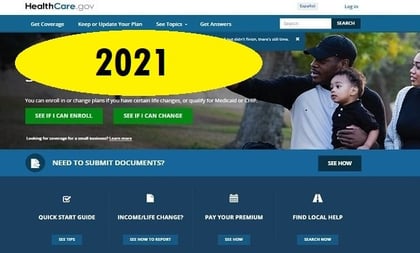The agency that oversees HealthCare.gov, and state-based Affordable Care Act (ACA) public exchange programs, has an idea for avoiding incorrect ACA premium tax subsidy payments: Stop telling dead consumers how much premium subsidy help they can get.
The Centers for Medicare and Medicaid Services (CMS) has included that recommendation in a draft “benefits and parameters” document and a draft letter to ACA exchange plan issuers.
The final versions of the documents is expected to shape how ACA rules and programs work in 2021.
Resources
- A summary of the new 2022 ACA parameters document, and links to parameters-related documents, are available here.
- An article about HealthCare.gov subsidy applicants who happened to be dead is available here.
One CMS goal is to hold down spending on the ACA premium tax credit subsidies.
The ACA public exchange program has created a family of online supermarkets that people can use to shop for commercial health coverage. Many exchange plan buyers with income from 100% to 400% of the federal poverty level use ACA credits to hold down the out-of-pocket cost of premiums.
Premium tax credit spending rose 40% in 2019, to $38 billion, or an average of about $7,800 per tax credit user, even though the number of people with exchange plan coverage fell 2%, according to an analysis of Internal Revenue Service data from the Treasury Inspector General for Tax Administration.
Many exchange plan users get the premium subsidies in advance, while the coverage year is under way, based on estimates of what they’ll earn in the coming year. When “advance premium tax credit” (APTC) users file their income tax returns the following year, the IRS tries to deduct any excess APTC payment amount from the taxpayer’s tax credit.
CMS has proposed a number of ideas for reducing the risk that the wrong people will get APTC help during the coverage.









 January 31, 2020 at 04:58 PM
January 31, 2020 at 04:58 PM











